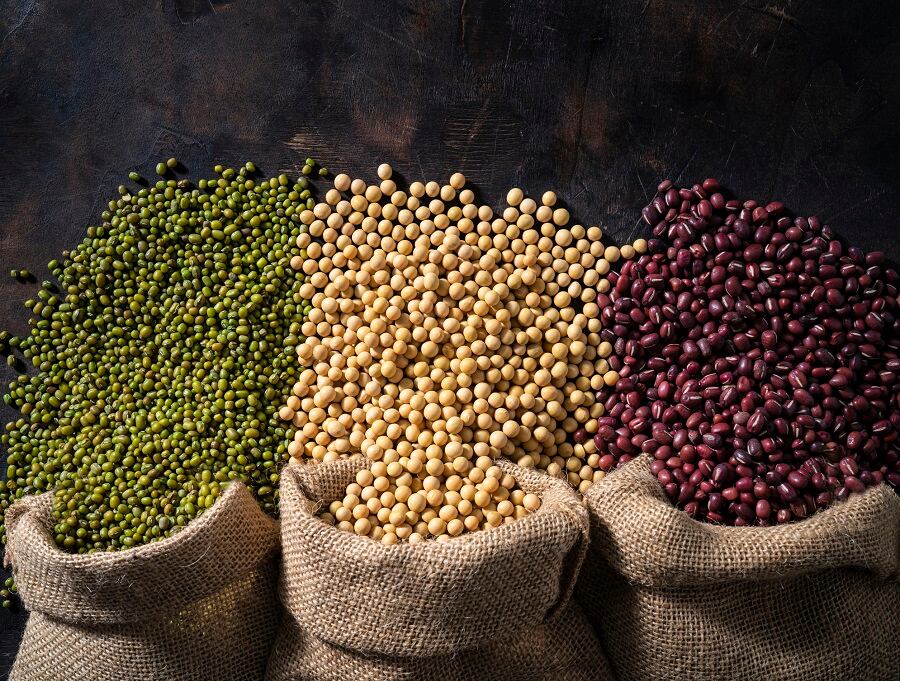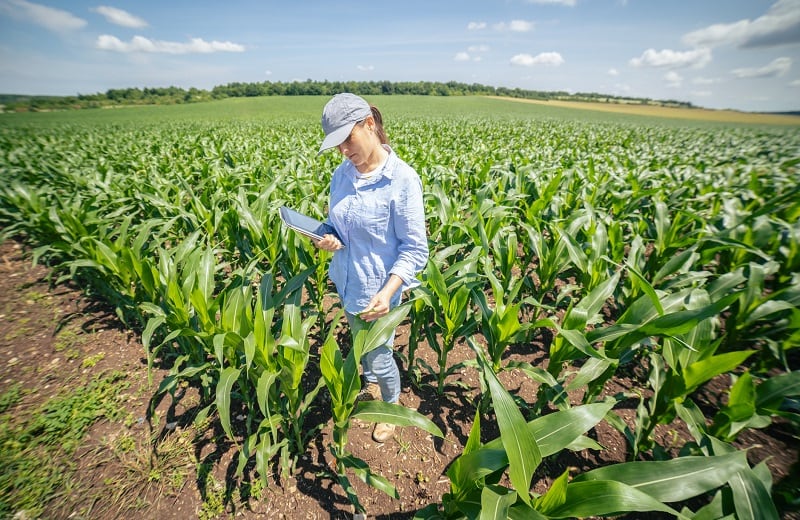The sustainability comparison between plant and animal-base proteins is far from clear-cut. Plant-based proteins are generally promoted as being more sustainable, but factors like resource consumption, land use and greenhouse gas emissions, among others, come into play when determining a company’s environmental footprint.
Animal-sourced proteins by design use more water and resources to cultivate than their plant-based counterparts. Lamb and beef, for example produce 39 kilos and 27 kilos of carbon dioxide for one kilo of meat, respectively.
Yet, plant-based foods also have a carbon footprint, explained Brian Nash, VP, corporate sustainability, Ingredion during the “Shaping a Greener Future: Exploring the Sustainable Benefits of Plant-Based Proteins” event.
“With global demand for plant-based proteins increasing and expected to grow, it’s vital that this nascent industry doesn’t repeat the same mistakes as the conventional food sector,” he said.
As one of the largest producers of meat in the world, the U.S. meat segment is worth $165 billion and expected to grow annually by 4.28% between 2023-2027. In comparison, plant-based foods occupy a smaller portion of the food market with value of $8 billion, although it’s a steady growth driver for U.S. food retail (making up 1.4% of total 2022 retail food and beverage sales).
Examining the environmental impact of plant-based proteins requires an integrated approach
“The shift to a plant-rich diet is estimated to be the second most powerful solution to reverse climate change,” Joao Brites, director, growth and innovation, HowGood, explained.
Carbon footprint tools can certainly help “as long as you know what’s the right level of granularity that you’re looking for,” but it’s not the only tool to measure sustainability, Brites added.
Of course, while greenhouse gases, water and land use can be measured quantifiably, it only tells part of a sustainability story. “I think it gets even more complicated as we’re talking about less quantifiable things like biodiversity…how are we measuring what steps we’re taking in that direction?” added Stacy Pyett, program manager, Proteins for Life, Wageningen University & Research.
Although the foray into plant-based foods is perceived as more sustainable, it’s important to ask critical questions about its impact in terms of sourcing, production and transportation.
“I think if you look across the aspects of plant-based proteins, it’s not always 100%...there might be more complexity that you need to look at,” Nash explained.
For food products, sustainable agriculture plays a ‘substantial role’
Agricultural science surrounding plant-based proteins is nuanced and still has “better sustainability performance [than] animal-based proteins,” Bites said. But it’s important to consider that the crop type and agricultural practices should be accounted for when quantifying sustainability impact.
“I see a lot of shortcuts [in the media, in the minds of consumers and in the food industry] that sustainability is only about greenhouse gas emissions, or a single issue. For example, for water or land use, you see certain novel proteins produced independent of land and that’s the highlight, rater than holistically [measured],” added Pyett.
For food products, agricultural sustainability plays “a substantial role,” Bites said. Land use and farming accounts for 70-80% of “the full life-cycle impact of the product,” including transportation emissions which contributes more to the overall production impact.
Regenerative agriculture programs could prove to be beneficial to strengthening sustainability initiatives, particularly as the food and beverage industry is inseparably linked to emissions from farming, transportation and plastic packaging.
Brands like PepsiCo and Mars have made commitments to net zero greenhouse gas emissions. Yet, solutions to reducing emissions and footprints are nuanced. Regenerative agriculture would require additional equipment and additional seeds, fuel and labor for commodity crops—highlighting an opportunity for suppliers and stakeholders in collaboration to develop more efficient and sustainable production processes.
Hybridization can improve sustainability metrics and consumer acceptance
As more food manufacturers look to incorporate more plant-based products into its portfolio, hybridization often offers a cost-effective and sustainable strategy to offset high costs of plant-based proteins.
“The demand for plant-based proteins is outstripping the amount that’s available, or that’s being produced on an ongoing basis,” Nash said.
Further, hybrid animal and plant-based protein products could serve as a bridge for consumers to pursue a more plant-based diet. For animal protein companies, “it can be a win-win for people who are looking to be a little bit more healthy in their diet,” Nash explained.
CPG companies have an opportunity to invest in R&D to improve the quality and sustainability of its products which translates into a marketing strategy designed to educate consumers on the benefits of alternative protein sources, ultimately building more acceptance of new products.




